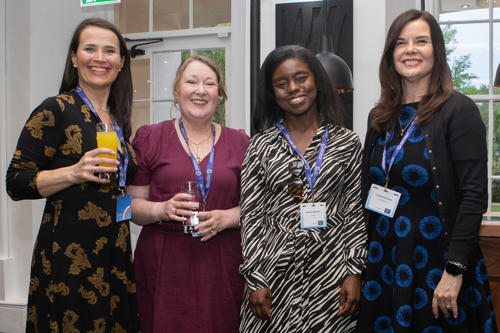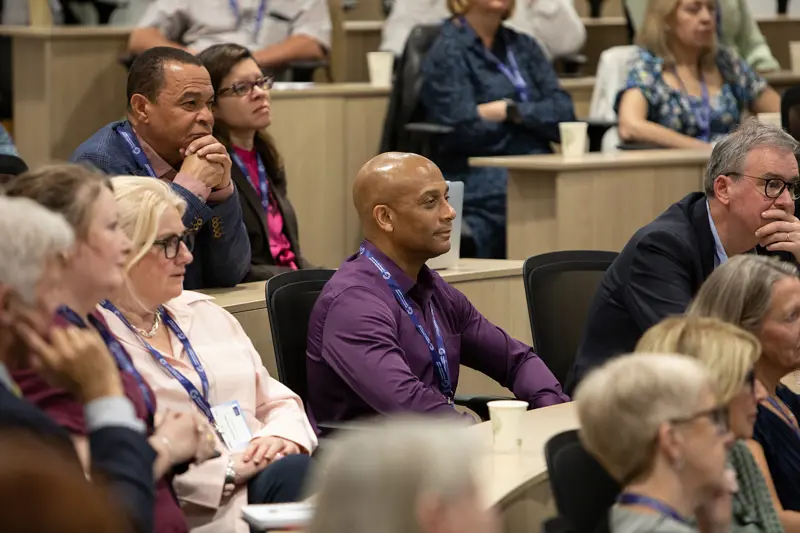- 2 May 2025
On 1 May 2025, the Institute welcomed members of the Global Council, Board, and distinguished friends to our second Annual Lecture—held for the first time at the prestigious London Business School.
This invitation-only event brought together senior governance professionals including the Chartered Governance Institute’s Global Council, the Institute’s board, and distinguished friends of the Institute to explore one of the most vital qualities in board leadership: independent judgement.
A warm welcome and a prestigious setting
The evening began with opening remarks from Professor Sergei Guriev, Dean of London Business School, who spoke on how important board governance is and the need for trained directors to inspire confidence in the businesses they run.
Neil Newman, Commercial Director of the Institute, welcomed guests to the event and expressed gratitude to London Business School for hosting. He acknowledged the strength of the Institute’s global community and the importance of creating space for meaningful dialogue on governance challenges and introduced the keynote speaker for the evening, Professor Sir Andrew Likierman, former Dean of London Business School and a globally respected authority on governance, public finance, and board effectiveness.
A lecture from a leading voice in governance
Sir Andrew’s lively and witty lecture focused on his influential work on the twelve elements of independent judgement—a framework that has gained increasing relevance in today’s complex and high-stakes governance environment.
His work began with S173 of the Companies Act 2006 and his identification of a gap in guidance to help define the duty on directors to exercise independent judgement.
The concept of good judgement is that of a fixed trait in a person; the reality is that it varies by decision and is skill that can be developed, refined, and applied across a wide range of boardroom decisions. Sir Andrew outlined the development of his ideas from his 2021 report for the Institute and the many influential people he spoke with in forming his views both in the UK and internationally. He highlighted that while we all exercise judgement daily—often unconsciously—true independent judgement requires self-awareness, contextual understanding, and the ability to navigate complexity without falling prey to bias or undue influence. There is always an element of luck to major decisions but breaking down the exercise of judgement to its component parts will stack the cards in a person’s favour.
Sir Andrew emphasised that judgement is at the heart of governance: it shapes how rules are interpreted, how decisions are made, and how accountability is upheld. Through vivid examples—from hiring decisions to forecasting—Sir Andrew illustrated how good judgement can be cultivated through experience, mentoring, and conscious effort.
He also warned of the risks, including overconfidence, complacency, and groupthink which can all erode the quality of decision-making. Good judgement is not just a personal skill, but a cultural and organisational asset that should be nurtured.
In her closing remarks, Victoria Penrice, past President of the Institute, reflected on the importance of fostering environments where independent judgement can thrive. She reminded attendees that good governance is not just about compliance—it is about courage, clarity, and the willingness to challenge.
Victoria also thanked London Business School for their generous hospitality and invited guests to stay for drinks and informal discussion, encouraging continued reflection on the evening’s themes.
The Annual Lecture is a cornerstone of the Institute’s commitment to thought leadership and professional development. We are grateful to all who attended and contributed to the evening’s success.




